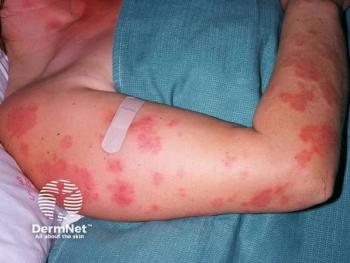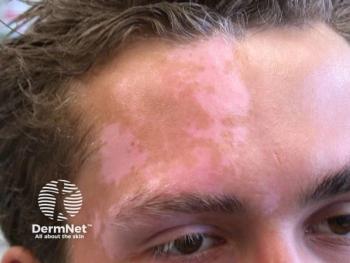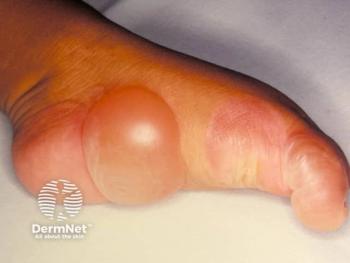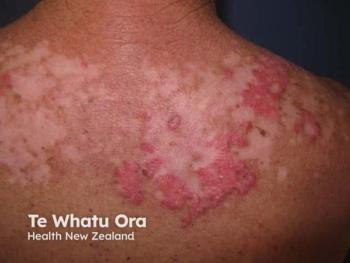
New Phase 3 UP-AA Data Demonstrate Significant Improvement in SALT Score With Upadacitinib in Alopecia
Key Takeaways
- Upadacitinib achieved significant scalp hair regrowth in severe alopecia areata, with 44.6% and 54.3% of patients reaching ≥80% coverage by week 24.
- The drug outperformed placebo in secondary endpoints, including complete scalp regrowth and eyebrow/eyelash restoration.
AbbVie's upadacitinib showed promising results in treating severe alopecia areata, achieving significant hair regrowth in pivotal phase 3 trials.
In the second study of the UP-AA program (NCT06012240),2 both the 15 mg and 30 mg once-daily dose cohorts receiving treatment with upadacitinib achieved the primary endpoint, with 44.6% and 54.3% of patients, respectively, achieving ≥80% scalp hair coverage (SALT ≤ 20) by week 24. This was a statistically significant improvement compared to placebo (3.4%; p<0.001).
Additionally, upadacitinib outperformed placebo across all ranked secondary endpoints, including more stringent thresholds of hair regrowth (SALT ≤ 10 and SALT = 0) and regrowth of eyebrows and eyelashes.
"UP-AA is the first pivotal program to have ranked and met the rigorous standard of SALT=0, indicating complete scalp hair regrowth," said Kori Wallace, MD, PhD, vice president, global head of immunology clinical development, AbbVie, in a news release.1 "These data underscore AbbVie's commitment to advancing novel treatments that have the potential to improve the lives of individuals with immune-mediated diseases."
Efficacy Across Key Domains
Upadacitinib demonstrated clear dose-dependent efficacy. By week 24, 36.0% (15 mg) and 47.1% (30 mg) of patients reached ≥90% scalp coverage (SALT ≤ 10), and a meaningful proportion achieved complete regrowth (SALT = 0). Both doses yielded significant improvement in facial hair parameters, including eyebrow and eyelash restoration.
"The sudden and often unpredictable hair loss people living with AA experience can profoundly impact their self-esteem and mental well-being," said Arash Mostaghimi, MD, MPA, MPH. associate professor of dermatology and vice chair of clinical trials and innovation, Brigham & Women's Hospital, Harvard Medical School.1 "There is a pressing need for more treatments that help enable regrowth of scalp and non-scalp hair. I am encouraged by these results that demonstrate the potential of upadacitinibto be an important new treatment option."
Safety Profile Consistent With Approved Indications
Upadacitinib’s safety in this AA patient population mirrored findings from its use in other approved indications such as atopic dermatitis and rheumatoid arthritis. Serious treatment-emergent adverse events (TEAEs) were infrequent, with 1.4% (15 mg) and 2.8% (30 mg) of patients reporting serious TEAEs. Discontinuations due to TEAEs were low (≤1.4% across groups), and the most commonly-reported AEs included acne, nasopharyngitis, and upper respiratory tract infections.
While upadacitinib is not yet approved for alopecia areata, this safety profile aligns with findings from a recent scoping review of 24 studies (N=64), which concluded that the drug was generally well tolerated, with only mild, transient AEs such as acneiform eruptions, transient cytopenias, and elevated creatine phosphokinase levels.3
Ongoing Investigation and Regulatory Path
"The UP-AA phase 3 findings highlight upadacitinib's potential as a best-in-class, once-daily, JAK1-selective inhibitor for alopecia areata, delivering the highest levels of scalp hair regrowth reported to date in a pivotal trial, with many patients reaching near-complete or full coverage within 24 weeks," said Christopher Bunick, MD, PhD, associate professor of dermatology at Yale School of Medicine in New Haven, Connecticut, and editor in chief of Dermatology Times, in a statement. "These results set a new benchmark for efficacy in alopecia areata and mark a significant advancement in what can be achieved with this targeted JAK inhibition for this challenging disease."
The full UP-AA program includes 2 identically-designed global trials: Study 1 and Study 2, both double-blind, placebo-controlled studies randomizing 1,399 participants ages 12 to 64 with severe AA (mean SALT 83.8). Study 1 results are expected in the third quarter of 2025.
Participants completing either pivotal trial may continue in a long-term extension study (Study 3) for up to 108 weeks to assess sustained response and long-term safety. These data will be critical to support potential regulatory submissions.
"Often misunderstood as a cosmetic issue, AA is a systemic immune-mediated disease that can cause total hair loss, involving the scalp, eyebrows and eyelashes,” Wallace said. “People living with AA may face difficulties in managing their disease, which can significantly affect their quality of life.”
References
- AbbVie announces positive topline results from phase 3 UP-AA trial evaluating upadacitinib (RINVOQ) for alopecia areata. News release. AbbVie. July 30, 2025. Accessed July 30, 2025.
https://news.abbvie.com/2025-07-30-AbbVie-Announces-Positive-Topline-Results-from-Phase-3-UP-AA-Trial-Evaluating-Upadacitinib-RINVOQ-R-for-Alopecia-Areata - A study to evaluate the safety and effectiveness of upadacitinib tablets in adult and adolescent participants with severe alopecia areata (Up-AA). ClinicalTrials.gov. Updated July 16, 2025. Accessed July 30, 2025.
https://clinicaltrials.gov/study/NCT06012240 - Stirrat T, Thakker S, Bejugam D, Goh C, Lipner SR. Upadacitinib for alopecia: current evidence and clinical insights. Skin Appendage Disord. 2025;11(3):320–334.
doi:10.1159/000544868
Newsletter
Like what you’re reading? Subscribe to Dermatology Times for weekly updates on therapies, innovations, and real-world practice tips.










